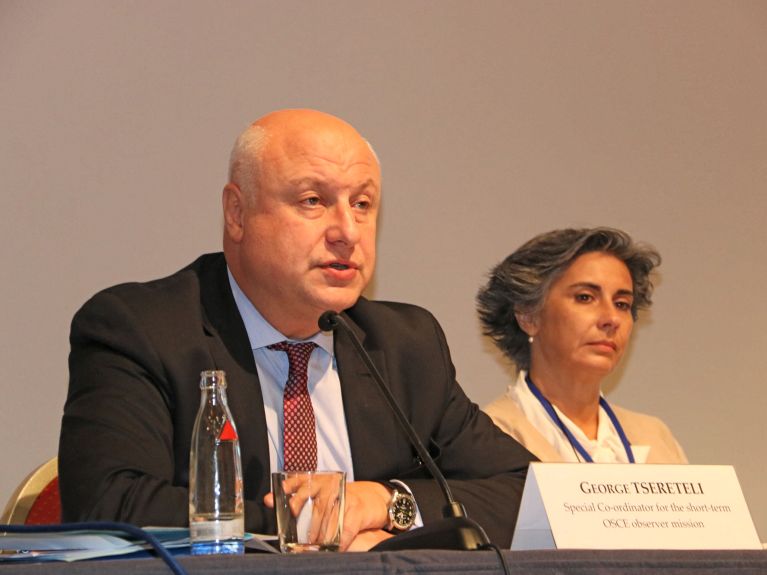“We’re not election police.”
Why are the Bundestag elections under observation by the OSCE? George Tsereteli explains.

Photo: © Creative Commons CC BY-SA 2.0
Germany. George Tsereteli is Vice President of the Parliamentary Assembly of the Organization for security and Cooperation in Europe (OSCE). The Georgian politician is co-ordinating the election observation mission during the Bundestag elections and leads a delegation of 50 MPs from20 OSCE member countries.
“Our decision to observe the German parliamentary elections followed an official invitation from the German government, which is standard practice for all OSCE countries. As members of the Organization for Security and Co-operation in Europe, we have all agreed to certain commitments and one of these commitments is inviting observers from other OSCE countries to observe elections. So this is a normal practice within the organization.
Our partner organization, the Office for Democratic Institutions and Human Rights (ODIHR), has deployed small election expert teams to Germany for the elections in 2009 and 2013, but this is the first time for us deploying a full election observation mission.
Election observation is no stigma.
Whenever we observe in a country for the first time, there can be some logistical challenges, in terms of arranging briefing programs and ensuring full access to polling stations, so this is probably the biggest difference. When we observe in a country where we have been many times before, the process of election observation is well understood by the election authorities, but in this case, not everyone knows who we are and what our objectives are. This means we have to take more time to introduce ourselves and explain what it is we are doing.
Some people in Germany may be suspicious about the observation of the federal Bundestag elections. I would just say that there really is no reason to be irritated by international observers coming to learn about the electoral process in Germany. While it is true that what you hear in the media about election monitoring is often when there is a dramatic statement – for example that a country’s elections were judged undemocratic by election observers – there really should not be a stigma attached to election observation. We aim simply to bring some additional transparency to the process, and I think we can all agree that this is important for elections.
It’s is very interesting to us as politicians to get a deeper sense of German political life. For these elections, I have been very interested following matters related to cybersecurity, migration and international impacts.
Fair, free and accurate?
We followes the political situation very closely in the run-up to the election, and were thoroughly briefed on the German electoral system. In the pre-election period, we paid close attention to the campaign atmosphere and in particular whether all election stakeholders were able to campaign freely and had fair access to the media. We met political parties, experts, election officials, civil society and media representatives, hearing about all aspects of the election environment.
We’re are not ‘‘election police’’ – we do not give instructions or advice.
After our two days of briefings in Berlin, we will deploy for election day observation. Some of us will remain in Berlin, while others will travel to other parts of the country. On election day, we’ll will observe the opening procedures in the morning, the voting throughout the day and the closing of polling stations in our areas of deployment.
Typically, teams of two observers stay at a polling station for half an hour before moving on to the next one, so throughout the day each team might visit as many as 15 polling stations. It is important to remember that we are not ‘election police’ – we do not give instructions or even advice, but simply observe how things take place, and ask a few simple questions of officials in polling stations.
At the end of the day, we will observe the closing of polling stations in our areas of deployment. Our teams all report their observations back to our team headquartered in Berlin.
On the day after the elections, we’ll will hold a press conference to announce any conclusions we have made drawn based on our observations.”
Protocol: Tanja Zech
